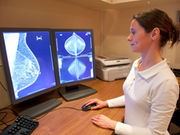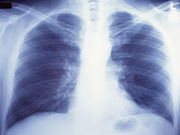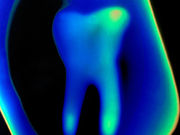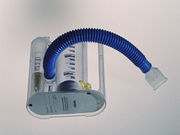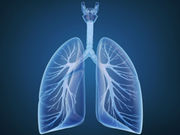Adding Triptorelin to Breast CA Chemo May Up Ovarian Recovery
Findings for premenopausal women with hormone-positive or hormone-negative breast cancer
Pembrolizumab Shows Promise in Metastatic NSCLC
In study, the immune-based therapy beat docetaxel with fewer side effects
Periodontal Disease Linked to Increased Breast Cancer Risk
Increased risk of postmenopausal breast cancer, especially for smokers who quit within last 20 years
Hematologists Often Initiate End-of-Life Discussions Too Late
Respondents in tertiary care centers more likely to report late discussions versus community centers
Use of Minimally Invasive Sx for Endometrial Cancer Varies
Minimally invasive surgery less likely for patients with Medicaid; for blacks, Hispanics versus whites
Daily Spirometry Can Give Early Warning of Pneumonia in AML
Patient-performed daily spirometry effective for early identification in patients with acute myeloid leukemia
Cryotherapy + Imiquimod Active in Cutaneous Melanoma Mets
Complete responses observed in patients with locoregional cutaneous metastases of melanoma
Affordable Care Act Has Improved Access to Care, Affordability
However, gaps in access to care and affordability still seen, especially for low-income adults
Ultrasound Findings in Invasive Breast CA Link to Histopathology
Histopathologic patterns, breast cancer biomarkers determine differences in findings on imaging
Age at NSCLC Diagnosis Tied to Odds of Targetable Phenotype
Younger age at diagnosis linked to increased frequency of targetable phenotype







